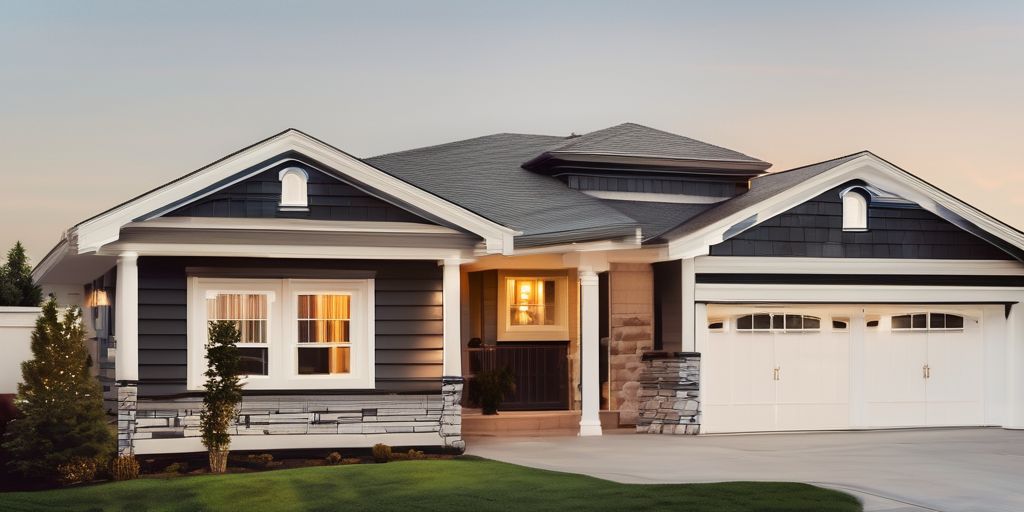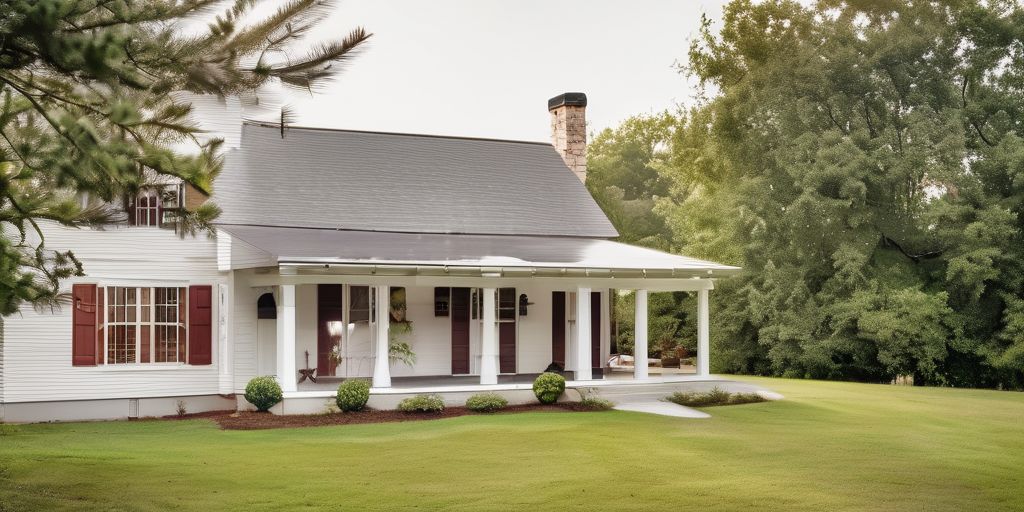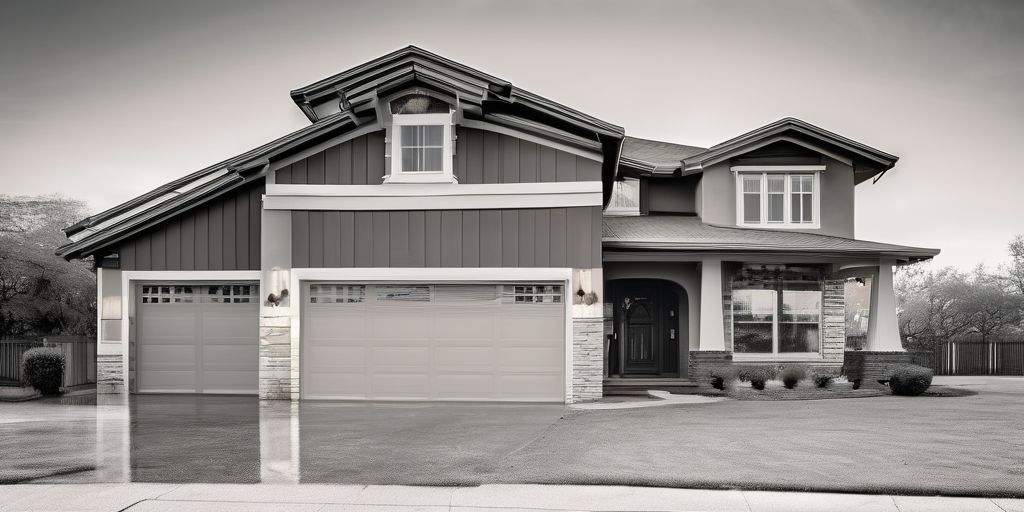Exterior spray painting in St. Catharines requires careful consideration of the seasonal climate to ensure the best results. Understanding how temperature, humidity, and unique weather patterns can affect paint application and drying times is crucial for a successful project. This article provides insights into the optimal seasons for exterior spray painting in the region, along with practical tips for preparation, execution, and maintenance to protect your paint job from the elements. Additionally, it covers the importance of proper maintenance and the benefits of hiring professional painters.
Key Takeaways
- Understanding St. Catharines’ climate is crucial for selecting the right paint and timing your project.
- Proper surface preparation varies by season and is essential for paint longevity.
- Monitoring weather forecasts can help you plan and adjust your painting schedule effectively.
- Using proper spray painting techniques and equipment ensures even coverage and durability.
- Routine maintenance and timely reapplication of paint protect against weather damage and extend the life of your paint job.
Choosing the Right Paint for St. Catharines’ Climate
Understanding Local Weather Patterns
The climate in St. Catharines can greatly affect the longevity and appearance of spray-painted surfaces. Proper preparation and paint selection are crucial for ensuring that your paint job stands up to the local weather conditions. St. Catharines experiences a range of weather conditions, from humid summers to cold winters, which can affect paint application and drying times. Be mindful of the temperature and humidity levels on your planned painting days.
Timing and preparation are key to a successful paint job in St. Catharines. By understanding the local climate and its impact on paint, you can take steps to ensure that your spray-painted surfaces remain vibrant and durable for years to come.
Selecting Climate-Compatible Paints
If you’re painting outdoor items, consider the local weather. In St. Catharines, where the climate can be unpredictable, it’s wise to choose paints that are weather-resistant. And if you’re near landmarks like the historic Welland Canals, you’ll want a finish that stands up to the elements while showcasing your work in the best light. Understanding St. Catharines’ climate is crucial for choosing paint that can withstand local weather variations, including high humidity and seasonal changes.
Manufacturer’s Instructions and Recommendations
When selecting paint, always follow the manufacturer’s instructions and choose coatings that are compatible with the local climate to enhance the longevity and durability of your painted surfaces. Regular cleaning, along with the application of protective coatings and sealants, can significantly extend the life of spray-painted surfaces. Early intervention at the first signs of wear and tear can prevent more extensive damage, making it important to know when to seek professional touch-ups and repairs.
Preparing Surfaces for Different Seasons
Spring and Summer Preparation Tips
- Spring: As the snow melts and the weather warms, it’s time to assess and repair any winter damage. Begin by cleaning surfaces thoroughly to remove any dirt, grime, or salt residue.
- Summer: High temperatures and humidity can affect paint adhesion. Ensure surfaces are dry and cool to the touch before painting. Early morning or late evening are ideal times to work.
Remember, each season requires its own set of precautions and adjustments to ensure optimal results. For those near landmarks like the Welland Canal, be mindful of increased moisture and prepare surfaces accordingly. Always check the weather forecast and have a backup plan for sudden changes.
Fall and Winter Preparation Tips
- Fall: Falling leaves and debris can stick to wet paint, so keep the area clean. Also, watch for early frosts and plan your painting accordingly.
- Winter: It’s generally not advisable to paint in winter due to low temperatures and high moisture levels. However, if you must, ensure surfaces are completely dry and consider using paints formulated for cold weather.
Importance of Surface Cleanliness
- Clean surfaces are crucial for paint adhesion and longevity. Dirt, grime, and salt residue can prevent paint from sticking properly.
- Use a pressure washer or a scrub brush with mild detergent to clean surfaces thoroughly.
- Allow surfaces to dry completely before painting to avoid trapping moisture, which can lead to peeling and cracking.
Selecting outdoor brick paint for shoreline St. Catharines homes is crucial for curb appeal and longevity. Tips on maintenance and hiring professional painters highlighted.
Timing Your Painting Project
Optimal Seasons for Spray Painting
Choosing the right season for your exterior spray painting project in St. Catharines is crucial. The best months for painting are typically late spring through early fall. During these months, temperatures are moderate, and humidity levels are lower, which helps the paint to dry and cure properly. Avoid painting in extreme temperatures or high humidity, as these conditions can affect the paint’s finish and longevity.
Monitoring Weather Forecasts
Flexibility is key when scheduling your painting project. Be prepared to adjust your plans according to the latest weather updates. Unexpected weather shifts can occur, so having a backup plan is essential. For instance, if a sudden rainstorm is forecasted, you might need to postpone or find ways to protect the wet paint.
- Check the local weather forecast regularly in the days leading up to your project.
- Look for a stretch of days with consistent weather patterns.
- Avoid painting on days with high chances of precipitation or extreme temperature shifts.
Remember, the key to a successful paint job is not just the application but also the timing.
Adjusting Plans for Unexpected Weather
Even with the best planning, unexpected weather can still pose challenges. Here are some tips to manage these situations:
- Monitor the weather closely as the seasons change. The transition periods between seasons can be particularly unpredictable.
- Schedule your painting during the milder months to avoid extreme temperatures that can affect paint application and drying.
- Utilize a moisture meter to check the surface before painting; high humidity can compromise paint adhesion.
By following these guidelines, you can navigate the seasonal challenges and ensure that your exterior spray painting project in St. Catharines is a success.
Techniques for Even Coverage
Achieving even coverage in exterior spray painting requires a combination of proper techniques, the right equipment, and an understanding of common challenges. Here are some essential tips to help you get started.
Proper Spray Painting Techniques
- Maintain a consistent distance from the surface to ensure uniform application.
- Use a steady, controlled motion to avoid uneven layers.
- Overlap each pass slightly to prevent missed spots and streaks.
- Adjust the spray pattern based on the surface texture and size.
Using the Right Equipment
- Choose a high-quality sprayer that suits the scale of your project.
- Regularly clean and maintain your equipment to ensure optimal performance.
- Use the appropriate nozzle size for the type of paint and surface.
- Calibrate your equipment to handle environmental factors like wind and humidity.
Common Mistakes to Avoid
- Avoid spraying in windy conditions to prevent overspray and uneven coverage.
- Don’t rush the process; allow sufficient drying time between coats.
- Ensure the surface is clean and dry before starting to avoid adhesion issues.
- Be mindful of safety precautions to protect yourself and the surrounding area.
Remember, patience is key. Rushing through the process can lead to a finish that’s less than ideal. Take your time, and you’ll be rewarded with a surface that looks professionally done, even on a budget.
By following these techniques and tips, you can achieve a smooth, even finish that enhances the beauty and durability of your exterior surfaces.
Maintaining Your Spray Painted Surfaces
Routine Maintenance Tips
Regular maintenance is key to preserving the beauty and durability of your spray-painted surfaces. Inspect surfaces for any signs of damage or aging and clean the affected areas gently but thoroughly. Touch up small imperfections promptly to prevent further deterioration.
Remember, addressing problems when they first appear can significantly extend the life of your spray painted surfaces.
Protecting Against Weather Damage
To protect against high humidity, apply a clear protective sealant over the spray paint. Choose a sealant that is moisture-resistant and allows for expansion and contraction of the painted surface. This is especially important in St. Catharines, where seasonal tips for exterior spray painting emphasize achieving even coverage, safety precautions, and maintaining spray-painted surfaces for durability and aesthetic appeal.
When to Reapply Paint
Reapplication of paint depends on several factors, including the quality of the initial paint job and the environmental conditions. As a rule of thumb, the rule of thumb is to apply several thin layer of coats to promote even coverage rather than attempting to completely cover the surface with one coat of paint. Regular cleaning should be done at least once every few months or as needed when dirt and debris accumulate. Periodic inspections for any signs of wear or damage should also be part of your maintenance routine.
Hiring Professional Painters in St. Catharines
When it comes to preserving the beauty and longevity of your spray-painted surfaces, enlisting the help of trusted local painters is a wise choice. Local expertise is invaluable, especially when dealing with the unique weather conditions of St. Catharines. Here are some tips to help you find the right professionals for the job:
Common Challenges and Solutions
Dealing with Humidity and Moisture
Humidity and moisture can significantly impact the quality of your exterior spray painting project. High humidity levels can cause paint to dry slowly, leading to drips and uneven coverage. To combat this:
- Choose paints specifically designed for humid conditions.
- Paint during times of the day when humidity is lower, typically mid-morning or late afternoon.
- Use dehumidifiers if painting indoors or in enclosed spaces.
Preventing Paint Peeling and Cracking
Peeling and cracking are common issues that can arise due to improper surface preparation or using the wrong type of paint. To prevent these problems:
- Ensure surfaces are clean and dry before painting.
- Use a primer to create a stable base for the paint.
- Select high-quality, weather-resistant paints.
Addressing Uneven Coverage
Achieving even coverage can be challenging, especially for those new to spray painting. Here are some tips to ensure a smooth finish:
- Maintain a consistent distance between the spray nozzle and the surface.
- Use steady, even strokes to apply the paint.
- Overlap each pass slightly to avoid missed spots.
For those looking to perfect their masking skills for precise spray painting, consider practicing on smaller projects before tackling larger surfaces.
By following these expert tips, you can ensure durable and beautiful results for your exterior spray painting projects in St. Catharines.
In the “Common Challenges and Solutions” section, we address frequent issues homeowners face with their exterior surfaces and provide effective solutions. From dealing with worn-out siding to finding cost-effective refurbishing options, our expert team has you covered. Discover how our specialized services can transform your home without the hefty price tag of replacements. For more details and to see our stunning before-and-after gallery, visit our website today!
Conclusion
In conclusion, achieving even coverage in exterior spray painting in St. Catharines requires a blend of proper timing, thorough preparation, and mindful maintenance. By understanding the local climate and its impact on paint application and drying times, you can ensure a durable and vibrant finish. Whether you choose to tackle the project yourself or hire a professional, always select high-quality materials and follow best practices to protect your investment. Remember, a well-executed paint job not only enhances the aesthetic appeal of your property but also provides a protective barrier against the elements. Happy painting!
Frequently Asked Questions
What type of paint is best for St. Catharines’ climate?
For St. Catharines’ climate, it’s essential to choose paints that can withstand varying temperatures and humidity levels. Look for paints specifically designed for exterior use and those recommended by manufacturers for local weather conditions.
How should I prepare surfaces for spray painting in different seasons?
Preparation varies by season. In spring and summer, ensure surfaces are clean and dry. In fall and winter, remove any frost or ice and allow surfaces to dry completely before painting. Always clean surfaces thoroughly regardless of the season.
When is the best time to start an exterior spray painting project in St. Catharines?
The optimal seasons for spray painting in St. Catharines are late spring through early fall. These periods typically offer the best weather conditions for paint application and drying.
What are common mistakes to avoid when spray painting?
Common mistakes include not preparing the surface properly, painting in unsuitable weather conditions, using incorrect spray techniques, and not following manufacturer’s instructions. Avoid these to ensure a smooth and even finish.
How can I maintain my spray painted surfaces?
Routine maintenance includes regular cleaning, inspecting for damage, and touching up any chips or cracks. Protect surfaces from harsh weather by applying sealants and reapplying paint when necessary.
Should I hire a professional painter for my exterior spray painting project?
Hiring a professional can ensure high-quality, long-lasting results. Professionals have the expertise, equipment, and experience to handle the challenges posed by St. Catharines’ climate.





